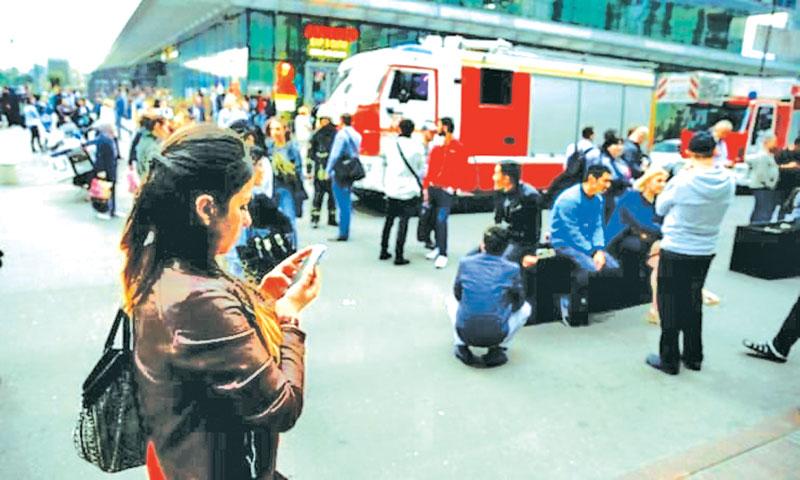
Sep 14: More than 100,000 people were evacuated from dozens of locations in Moscow - including a luxury shopping centre near Red Square - after a wave of hoax bomb threats hit the city, Russian media reported on Thursday.
Telephone calls warning of imminent bombings also triggered the evacuation of railway stations, airports, universities, hospitals and hotels, plunging parts of the Russian capital into chaos, the Interfax news agency said. All of them proved to be false.
Bomb scares have also caused massive disruption in other towns and cities across Russia in recent days. The first calls were reported in Omsk, a city in Siberia, on Sunday, as Russians voted in regional elections. They have since caused panic in cities as far apart as Kaliningrad, Russia’s Baltic exclave, and Vladivostok, on the Pacific coast.
No one has taken responsibility for the calls, believed to be pre-recorded messages, and the Kremlin has refused to comment. One anonymous official was cited as saying the false alerts were part of a nationwide anti-terrorist drill, but this has not been confirmed.
The sheer scale of the disruption would also seem to suggest this is unlikely to be the case, however. There have been over 1,500 cases of “telephone terrorism” in the southern city of Stavropol alone.
Reports say the warnings are made via scrambled internet connections. State television broadcast audio of what it said was one of the calls, in which a voice says: “An explosive device has been placed in the building. Evacuate people, and call in bomb squads. This is not a drill. Do you understand me?” Over 200 companies and organisations have been affected nationwide, reports say.
Russia has often been targeted by jihadist militant groups, including a suicide bombing on the St Petersburg metro in April that killed 16 people. Pro-Kremlin media has speculated that the bomb threats could be part of a foreign plot to destabilise Russia. “There’s reason to assume this was all organised abroad,” said an unnamed security service official in Chelyabinsk, a city in the Urals. An unnamed security services source told the RBK news website that the calls had been traced to an IP address in Ukraine, but officials have not commented publicly.
The hoax calls come as Russia and Belarus begin massive military drills on Nato’s borders on Thursday. The Zapad (west) exercises are expected to involve up to 100,000 troops and are taking place near the borders of the Nato member states Latvia, Lithuania and Poland.
